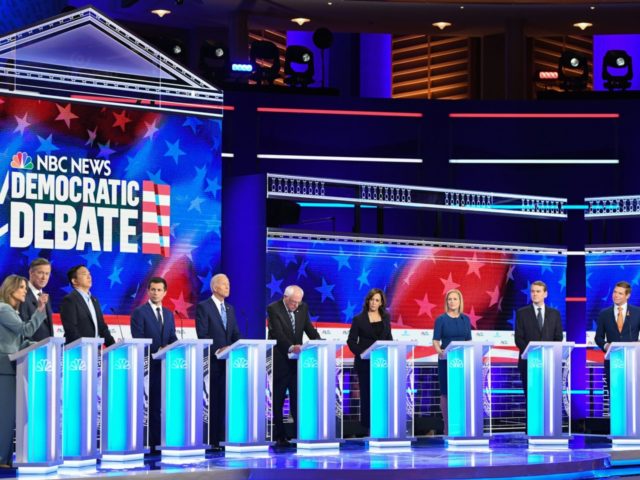Democrats complaining of the unwieldy debate process for the first round of debates face the same qualification rules for round two in July.
“This was absolutely freaking terrifying,” moderator Rachel Maddow said on MSNBC after the debate. “As you know, moderating the debate is hard. Moderating a 10-way debate two nights in a row is not a thing humans can do and we should never try it again.”
The second debate night was more chaotic, as lower-tier candidates repeatedly interrupted and tried to wrestle with moderators for more camera time.
The Washington Post counted 53 instances of candidates interrupting each other on Thursday and 30 interruptions on Wednesday.
The Democrat National Committee announced that candidates making the cut in the second debate must register at least one percent support in three separate polls and have at least 65,000 unique donors, and a minimum of 200 unique donors per state in at least 20 U.S. states.
CNN will host the second debates in July, which will take place over two nights, and the DNC is expected to again pick at random who ends up on stage, despite the controversial nature of the first round of debates.
Top tier candidates such as former Vice President Joe Biden had to share the stage with bottom tier candidates such as author Marianne Williamson, while Sen. Elizabeth Warren was separated from her closest polling rivals Biden and Sen. Bernie Sanders.
Again, the Democratic National Committee will pick at random which candidate debates on which day, rather than having the splitting them between the lower tier and the higher tier.
Depending on polling, up to 25 candidates could end up split between two nights.
However, lackluster performances in the first debates, may lead to some candidates sinking below the threshold in the polls.
The second round of debate will be hosted by CNN in Detroit, Michigan on July 30 and 31.

COMMENTS
Please let us know if you're having issues with commenting.